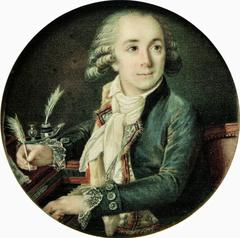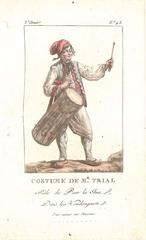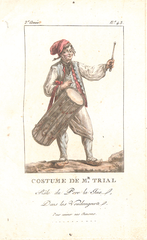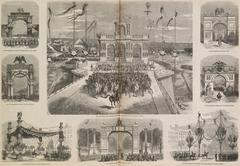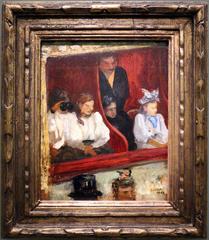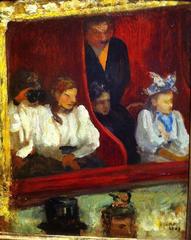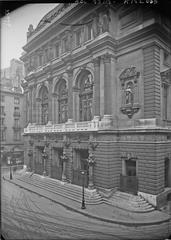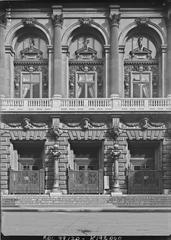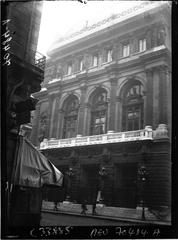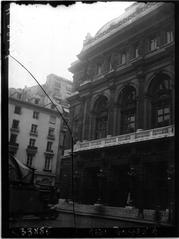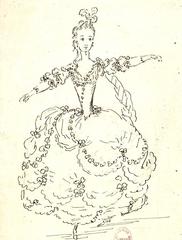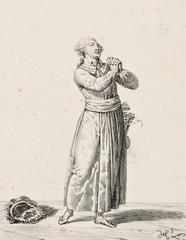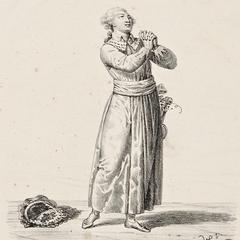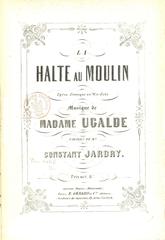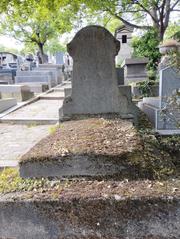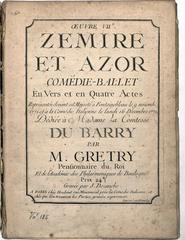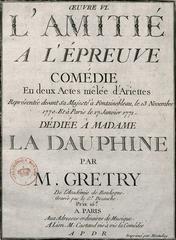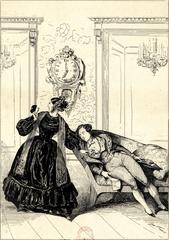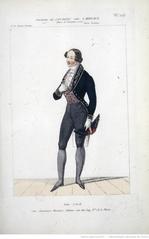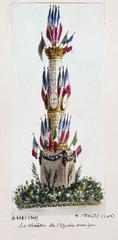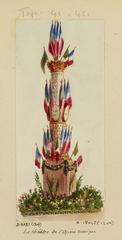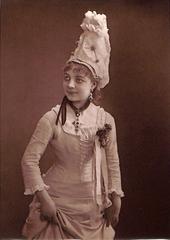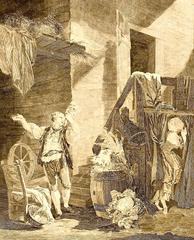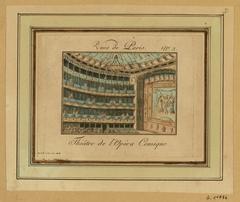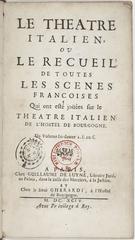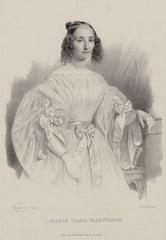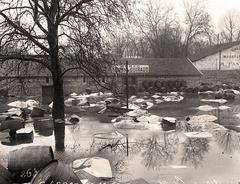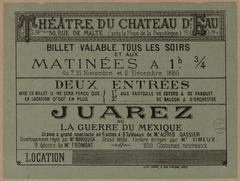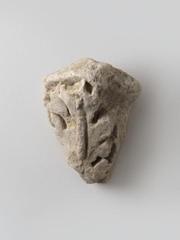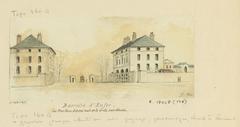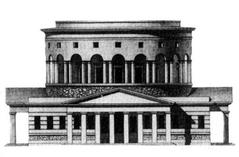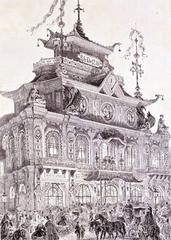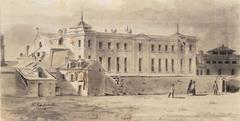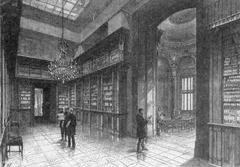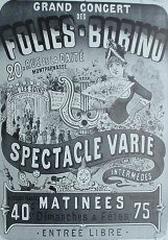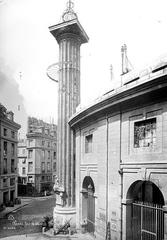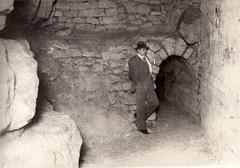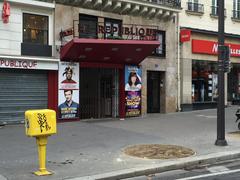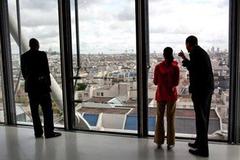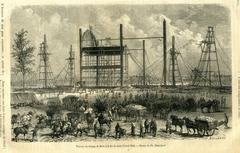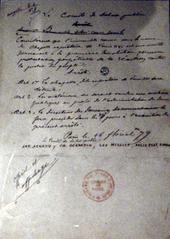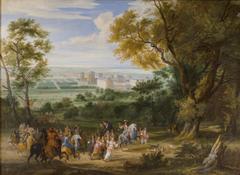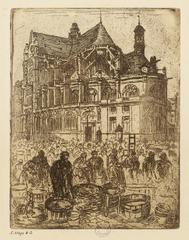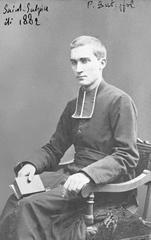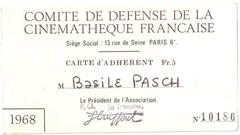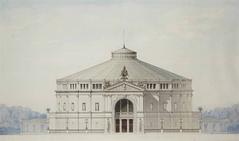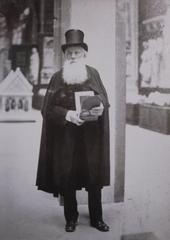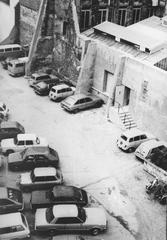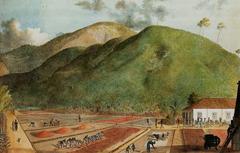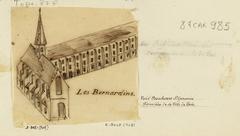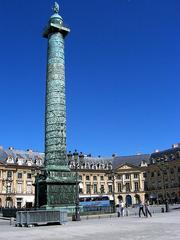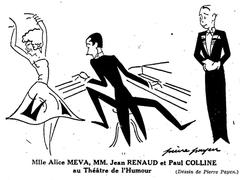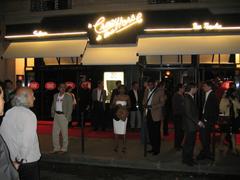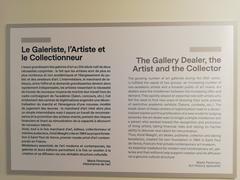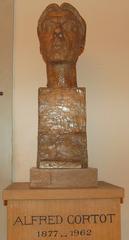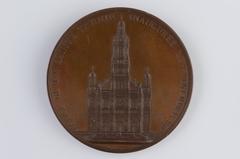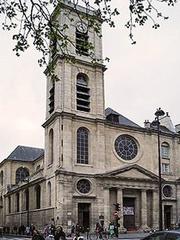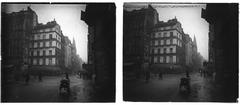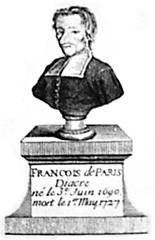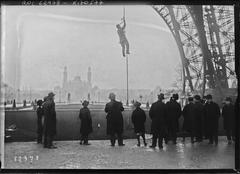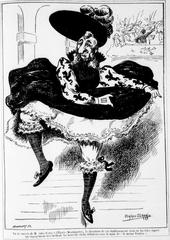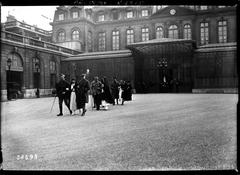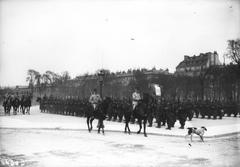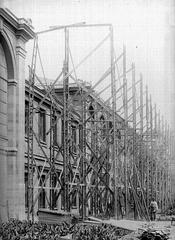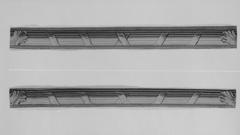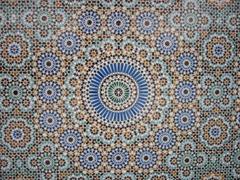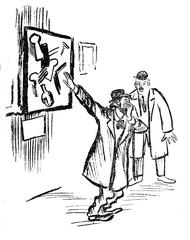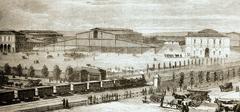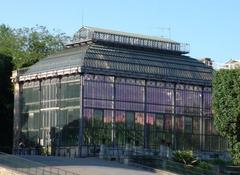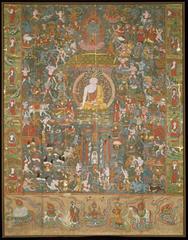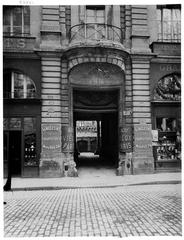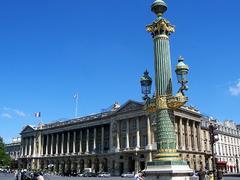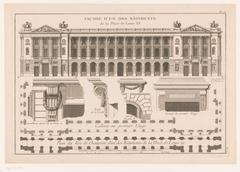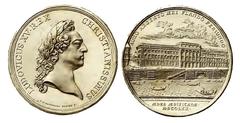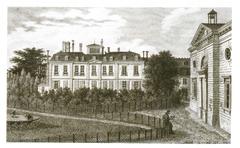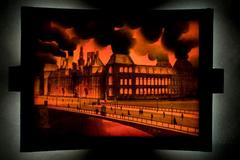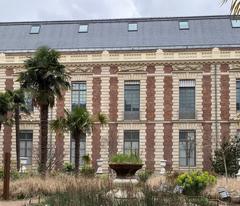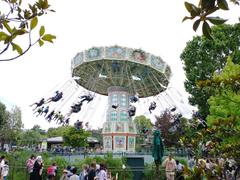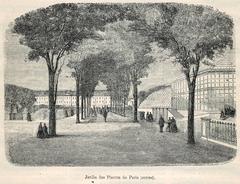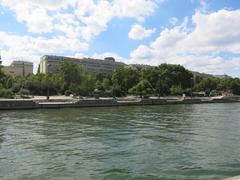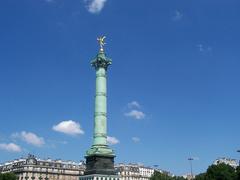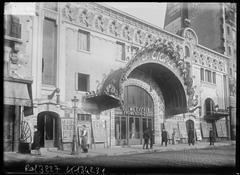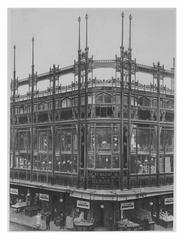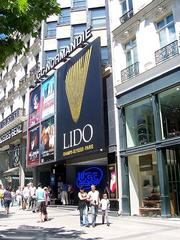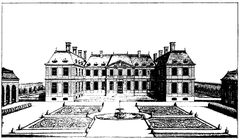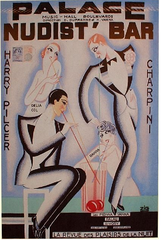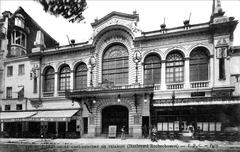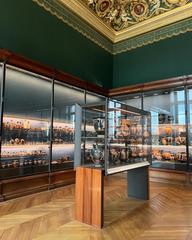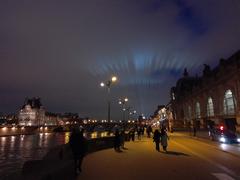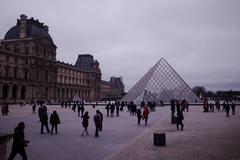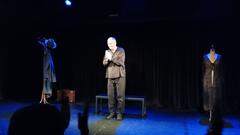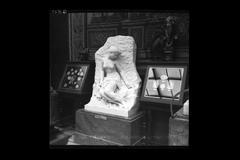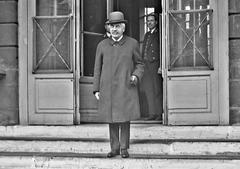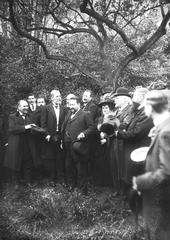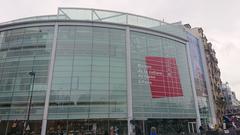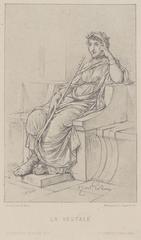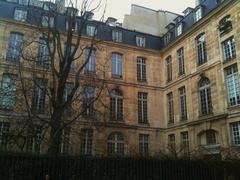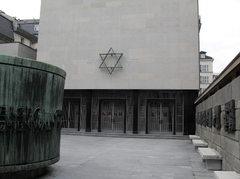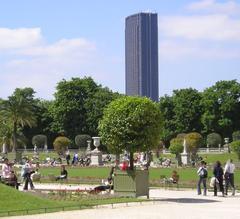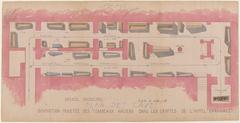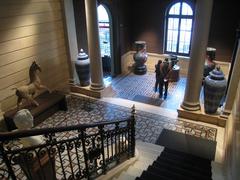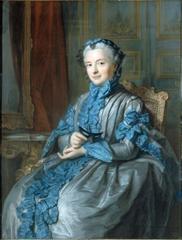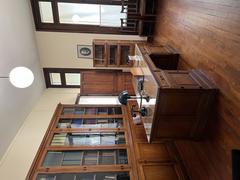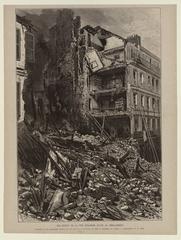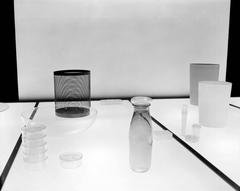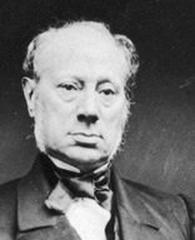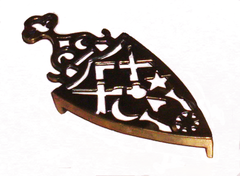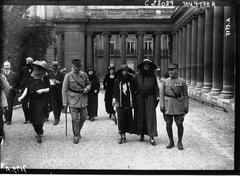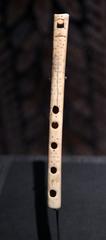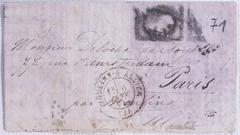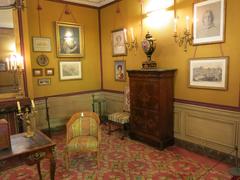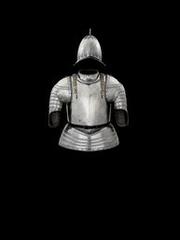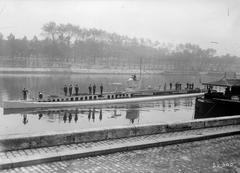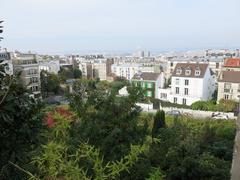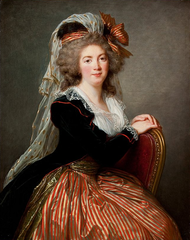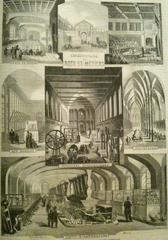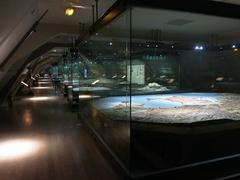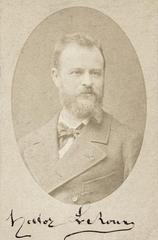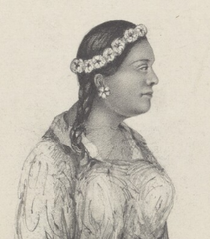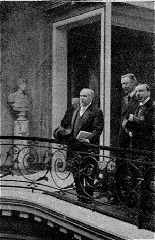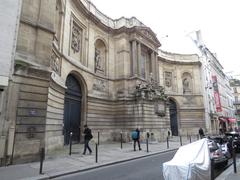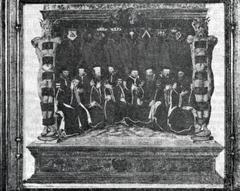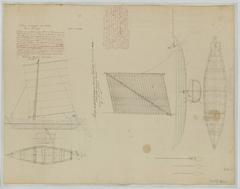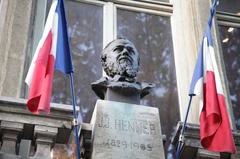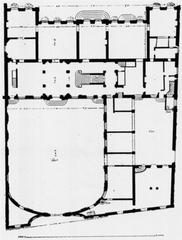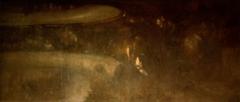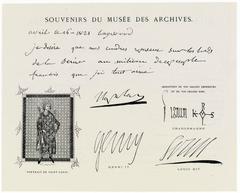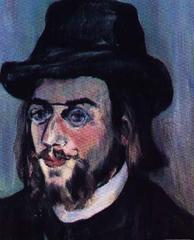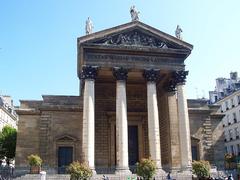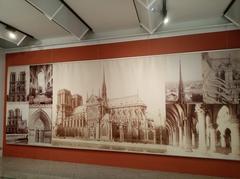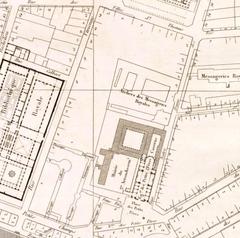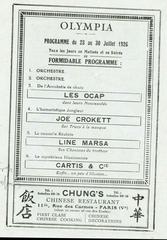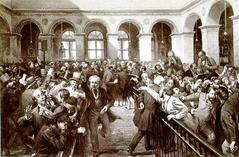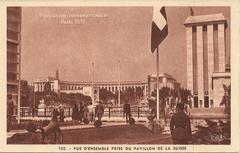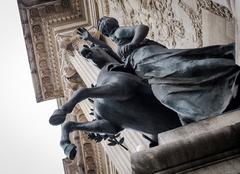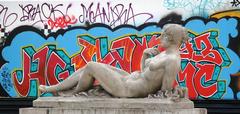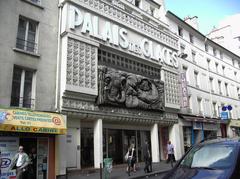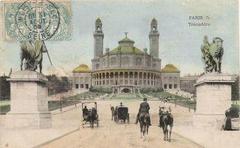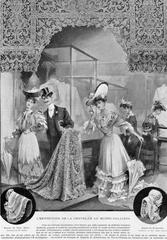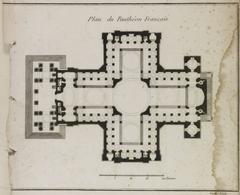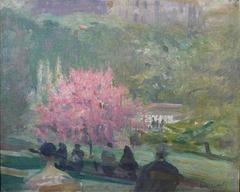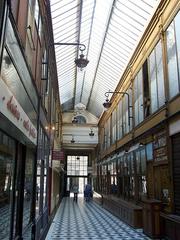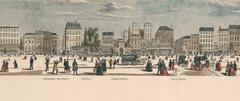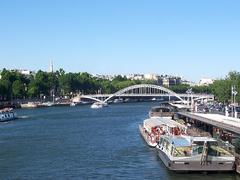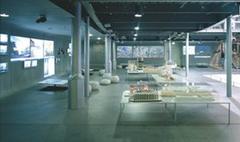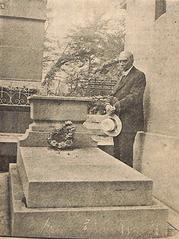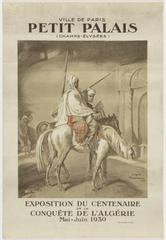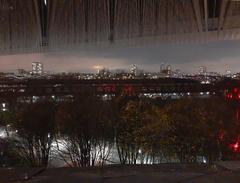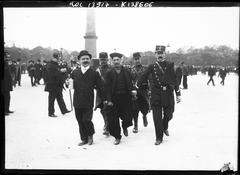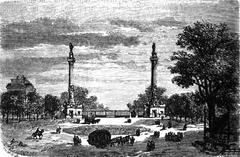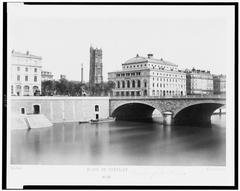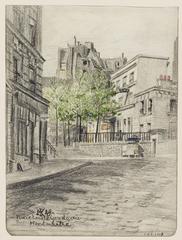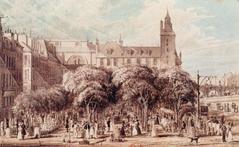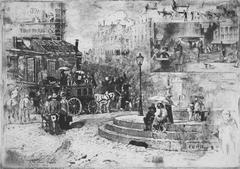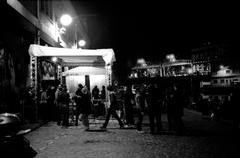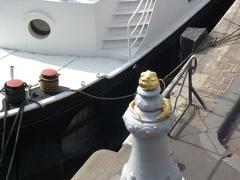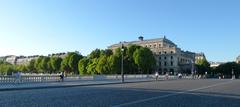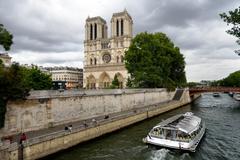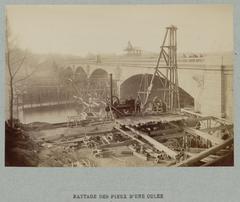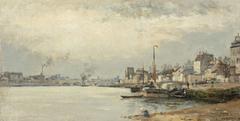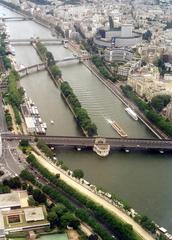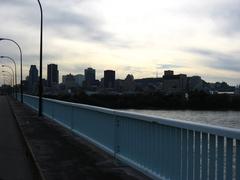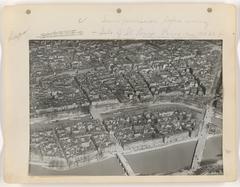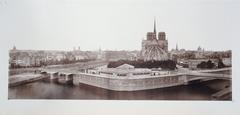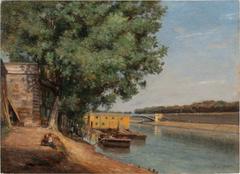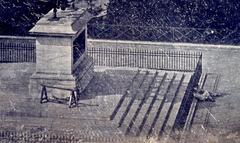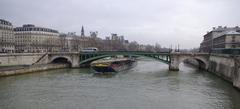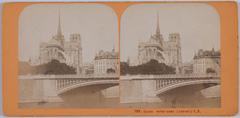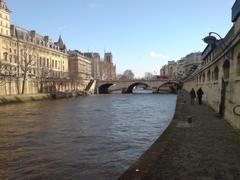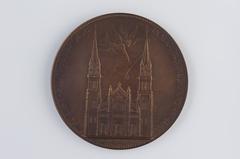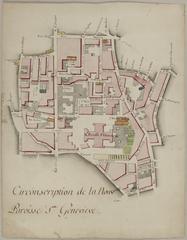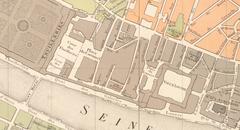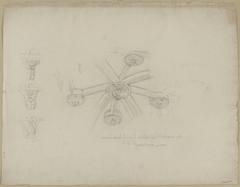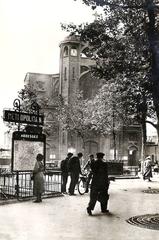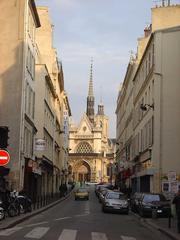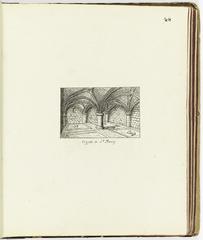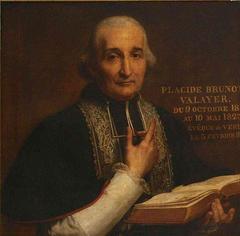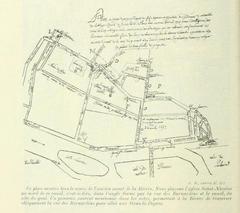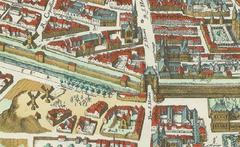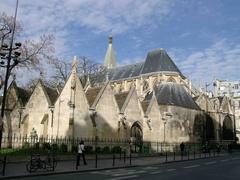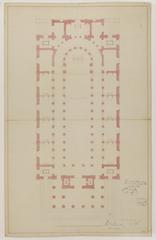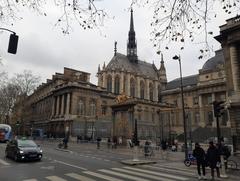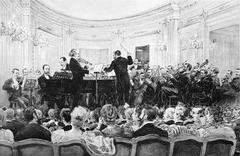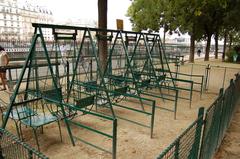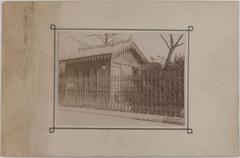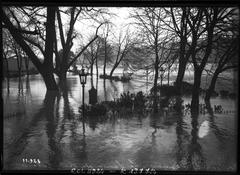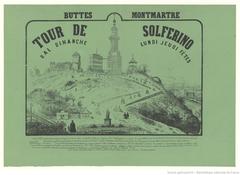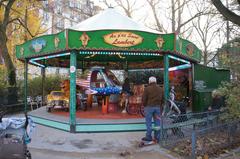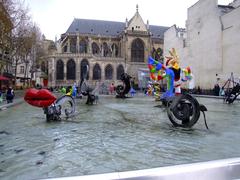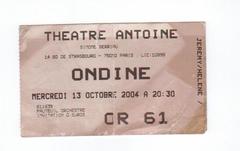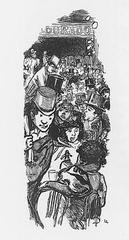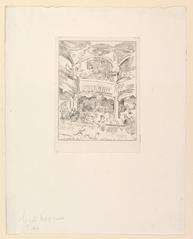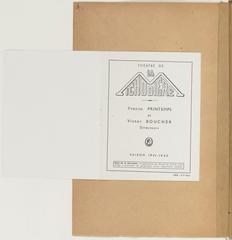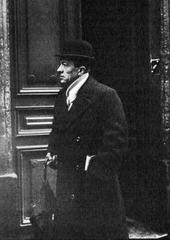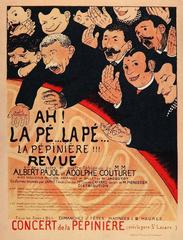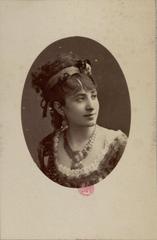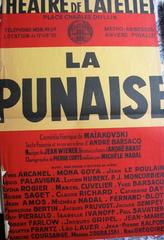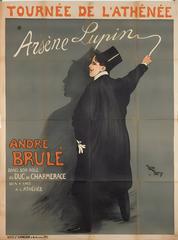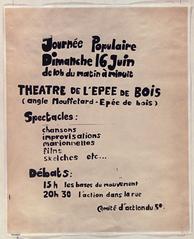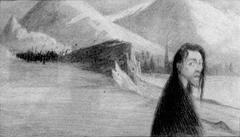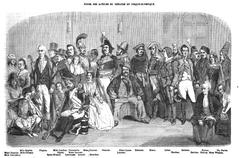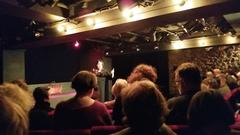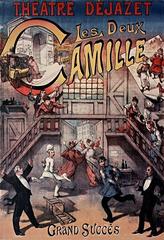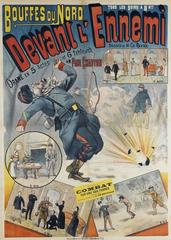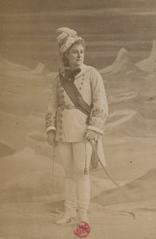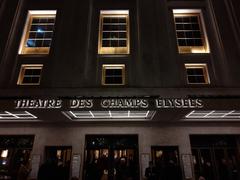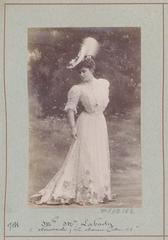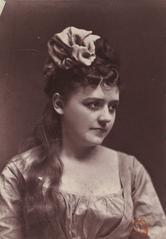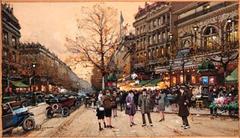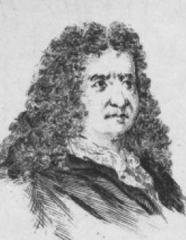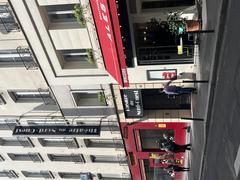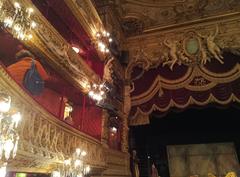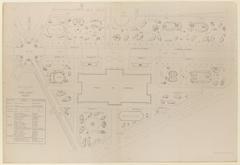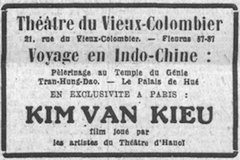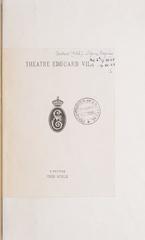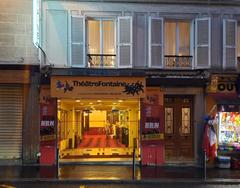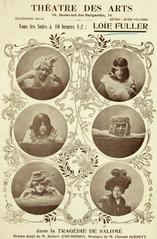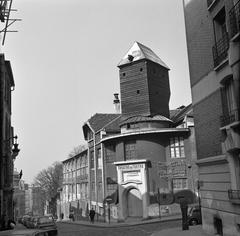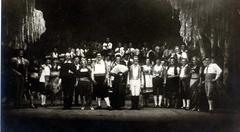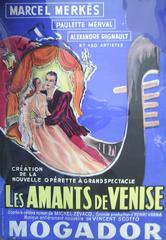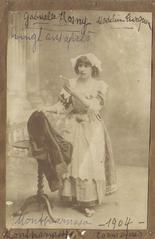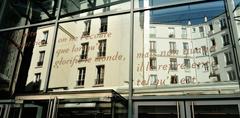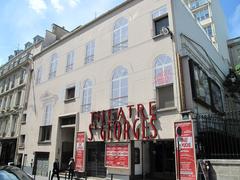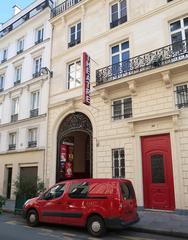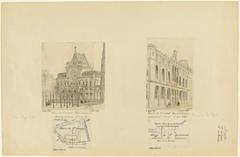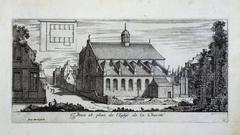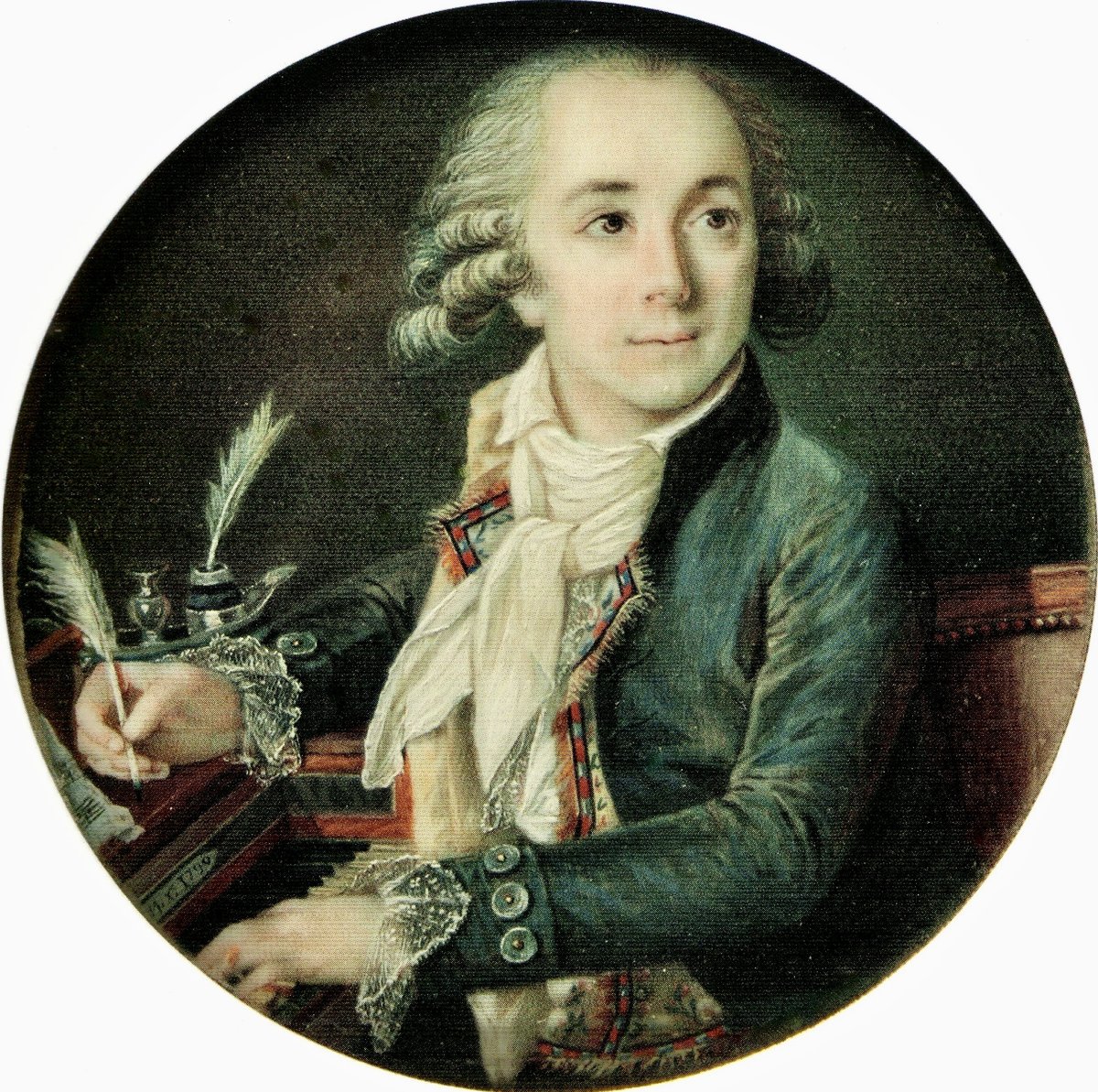
Opéra-Comique Paris: Visiting Hours, Tickets, and Historical Significance
Date: 14/06/2025
Introduction: The Opéra-Comique’s Legacy in Parisian Culture
The Opéra-Comique in Paris is a living testament to the city’s enduring artistic vibrancy, seamlessly blending three centuries of musical innovation with architectural grandeur. Founded in 1714, it stands among the oldest theatrical institutions in France and has played a crucial role in the evolution of French musical theatre, particularly through the pioneering genre of opéra comique—a unique blend of spoken dialogue and sung arias. This institution has influenced not only French opera but also the development of modern musical theatre worldwide (Opéra-Comique official site; Theatre in Paris).
Located at 1 Place Boieldieu in Paris’s 2nd arrondissement, the Opéra-Comique’s current home, Salle Favart, was designed by Louis Bernier and completed in 1898. Its neoclassical façade, adorned with six imposing caryatids, and its lavish auditorium reflect the opulence of late 19th-century theatre architecture (France.fr; Theatre in Paris). The theatre was also the first in France to feature fully electric lighting, setting new standards in safety and audience experience.
Throughout its storied history, the Opéra-Comique has hosted premieres of some of opera’s most enduring masterpieces, including Bizet’s Carmen, Debussy’s Pelléas et Mélisande, and Offenbach’s Les Contes d’Hoffmann. Today, it continues to present a vibrant mix of classic and contemporary works, offering guided tours and an accessible, enriching visitor experience (Opéra-Comique 2025–2026 Season; Opéra-Comique guided tours).
Table of Contents
- Introduction
- The Origins and Evolution of the Opéra-Comique
- The Salle Favart: Architecture and Restoration
- Artistic Legacy and Premieres
- Visiting the Opéra-Comique: Essential Information
- Cultural Significance and Influence
- 2025–2026 Season Highlights
- Frequently Asked Questions (FAQ)
- Conclusion & Planning Your Visit
- References
The Origins and Evolution of the Opéra-Comique
Established in 1714 during the reign of Louis XIV, the Opéra-Comique began as an ambitious experiment, blending sung arias and spoken dialogue—a distinct departure from the grand opéra tradition of the Académie Royale de Musique (Theatre in Paris). Originating from lively fairground performances at the Foire Saint Germain and Foire Saint Laurent, this new theatrical form rapidly gained popularity for its approachable and entertaining style.
The company initially lacked a permanent venue, performing in various theaters across Paris. Over time, the Opéra-Comique grew in reputation, attracting composers eager to push the boundaries of French musical theatre and storytelling.
The Salle Favart: Architecture and Restoration
The Opéra-Comique’s permanent home at 1 Place Boieldieu is the third iteration of Salle Favart, following previous structures lost to fire in 1838 and 1887. Completed in 1898, the current building by architect Louis Bernier is a paragon of Beaux-Arts design. Its distinguished neoclassical façade is characterized by six monumental caryatids, intricate stonework, and towering arched windows that illuminate the grand foyer (France.fr; Theatre in Paris).
Inside, the horseshoe-shaped auditorium seats about 1,200 spectators, famed for its gilded balconies, plush red velvet seating, ornate stucco, and exceptional acoustics. Recent restoration efforts (2012–2018) have meticulously revived these features, ensuring a harmonious blend of historic grandeur and modern comfort (France.fr).
Technologically, the Opéra-Comique was a pioneer, being the first French theatre lit entirely by electricity, a major advancement in the late 19th century (Theatre in Paris).
Artistic Legacy and Premieres
The Opéra-Comique has long been a crucible for operatic innovation, premiering over 3,000 works in its history. Notable world premieres include:
- Bizet’s Carmen (1875): Initially controversial, it is now a global favorite.
- Debussy’s Pelléas et Mélisande (1902): A milestone in French musical impressionism.
- Offenbach’s Les Contes d’Hoffmann (1881): A fantastical staple of the repertoire.
- Massenet’s Manon (1884): A defining work in French lyric opera.
- Delibes’ Lakmé (1883): Renowned for its ethereal “Flower Duet” (Theatre in Paris).
Today, the Opéra-Comique continues to commission and premiere contemporary works, maintaining its role at the forefront of the operatic world (Theatre in Paris).
Visiting the Opéra-Comique: Essential Information
Visiting Hours
- Box Office: Monday to Saturday, 12:00 PM–6:00 PM
- Guided Tours: Usually offered outside of performance times and during special events. Always check the Opéra-Comique calendar for exact schedules.
- Performance Entry: Doors typically open 45 minutes before showtimes.
Ticketing and How to Purchase
- Performances: Tickets range from €15 to €175, depending on seating and production.
- Guided Tours: Typically around €10, with discounts for students and seniors.
- Purchase: Online via the Opéra-Comique ticketing site, by phone, or in person at the box office.
- Discounts: Available for youth, families, and people with disabilities. The Mainate card offers up to 50% off for visitors under 18.
Accessibility
- Step-free access, elevators, and reserved seating for visitors with reduced mobility.
- Hearing assistance devices and accessible restrooms.
- Contact the box office ahead of your visit for tailored arrangements (Opéra-Comique official site).
Guided Tours
- Guided tours explore the grand foyer, auditorium, backstage, and costume workshops.
- Tours are available in multiple languages and often coincide with special events like European Heritage Days (Sortir à Paris).
Travel Tips & Nearby Attractions
- Getting There: Metro lines 3, 7, and 8 (Quatre Septembre or Bourse stations); several bus lines serve the area.
- Nearby: Palais Royal, Louvre Museum, Grands Boulevards, and covered passages of Paris are within walking distance.
- Amenities: On-site bar for refreshments during intermission; numerous local cafés nearby.
Cultural Significance and Influence
The Opéra-Comique is more than a theatre—it is a social and cultural hub that has shaped French art, reflected societal change, and offered a platform for innovation. Its programming has often tackled contemporary themes, from social justice to generational conflicts, and continues to embrace diversity and inclusivity (lepetitjournal.com; Cambridge Scholars). As a National Theatre since 2005, it balances the preservation of French heritage with a commitment to renewal and international outreach.
2025–2026 Season Highlights
Major Opera Productions
- Les Contes d’Hoffmann (Offenbach): Sept 25 – Oct 5, 2025
- Iphigénie en Tauride (Gluck): Nov 2 – 12, 2025
- Werther (Massenet): Jan 19 – 29, 2026
- Nuit sans aube (Pintscher, world premiere): Mar 11 – 17, 2026
- Lucie de Lammermoor (Donizetti): Apr 30 – May 10, 2026
- Brundibár (Krása): June 3 – 8, 2026
Recitals, Concerts & Masterclasses
- Recitals by Stéphane Degout, Cyrille Dubois, Julie Roset, and others
- Masterclasses with leading artists throughout the season
Family and Youth Programming
- Jolis Chœurs Youth Festival: Feb 1–14, 2026
- Christmas with the Maîtrise Populaire: Dec 5–6, 2025
- Puppet shows, open house events, and family activities
Special Events
- European Heritage Days: Sept 20–21, 2025
- Starlit December Festival: Dec 1–14, 2025
- Tous à l’opéra: May 9, 2026
For the complete schedule, visit the Opéra-Comique 2025–2026 Season page.
Frequently Asked Questions (FAQ)
Q: What are the Opéra-Comique visiting hours?
A: The box office is open Monday to Saturday, 12:00 PM–6:00 PM. Guided tours and performances have varying schedules—always check the official calendar.
Q: How do I buy tickets?
A: Tickets are available online, by phone (+33 (0)1 70 23 01 31), or at the box office. Advance booking is recommended.
Q: Is Opéra-Comique accessible for visitors with disabilities?
A: Yes, the theatre is equipped with step-free access, elevators, and reserved seating.
Q: Are guided tours offered?
A: Yes, guided tours including backstage areas are available outside of showtimes.
Q: Can families and children attend special events?
A: Absolutely! The theatre offers festivals, puppet shows, and activities for young audiences.
Conclusion & Planning Your Visit
The Opéra-Comique is a jewel of Parisian culture, offering a rich blend of history, architecture, and world-class performance. Whether you are an opera lover, a history buff, or simply curious about French culture, this venue promises a memorable experience. For the latest information on visiting hours, tickets, and upcoming events, consult the Opéra-Comique official website.
Enhance your visit by exploring nearby landmarks and connecting with the Opéra-Comique community through digital platforms. Download the Audiala app for audio guides and event updates, and follow the theatre’s social channels for insider news.
References
- Opéra-Comique Official Website
- Theatre in Paris: Faust at Opéra-Comique
- France.fr: Behind the Scenes at the Opéra-Comique
- Sortir à Paris: JEMA 2025 at the Opéra-Comique
- Opéra-Comique 2025–2026 Season
- Cambridge Scholars: The Opéra-Comique and French Musical Theatre
- Lepetitjournal.com: Discovering the Opéra-Comique
